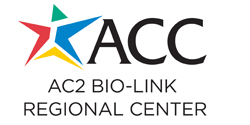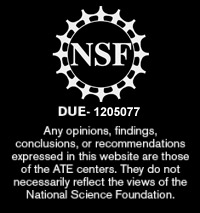
AC2
AC2 Bio-Link Regional Center
Austin, TX
www.ac2.bio-link.org
Contact
Linnea Fletcher
Principal Investigator (PI)
linneaf@austincc.edu
(512) 223-5912

AC2 Offers Internships with Contract Services & Incubator
The Austin Community College (ACC) Biotechnology Department established the AC2 Institute in 2014 to improve its industry connections. The college’s biotechnology program previously established a contract service organization to provide students with internship opportunities while helping companies conduct research and product development. Industry partners include Austin-based Bioo Scientific, which has worked with the college to develop curriculum and has hired several ACC biotechnology students.
The institute received funding to develop a wet lab commercialization incubator, which will further connect economic development with educational opportunities when it opens in 2016. The AC2 Institute is also home to the AC2 Bio-Link Regional Center.
AC2 Bio-Link Regional Center Builds on Biotech Network
AC2 is expanding the successful Bio-Link network across the state of Texas through a number of initiatives to help individuals progress in biotech careers. These include offering an entry-level certificate, standardizing articulation agreements among educational institutions, and developing new sources of biotechnology students by reaching out to students in biotechnology prerequisite courses such as biology or chemistry.
AC2 is working with high schools and two-year colleges to introduce an entry-level certificate as part of a tiered certificate-to-degree program. The tiered credential will reflect the latest industry developments so that graduates of either two- or four-year programs are wellequipped for employment. Technicians in the field can use the new program to build upon their knowledge and skills.
New standardized, statewide articulation agreements will ensure that coursework at all levels—high school, community college, university, and graduate—transfers among institutions.
Finally, students taking high school and community college biotechnology prerequisite courses will be exposed to biotechnology research and career experiences to foster a recruitment pipeline.



